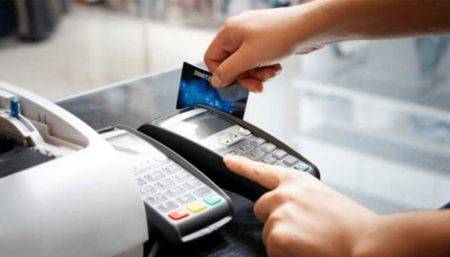In the first three months of 2024, Nigeria witnessed a staggering surge in e-Payment transactions, as reported by the Nigeria Inter-Bank Settlement System (NIBSS). The total transaction volume skyrocketed to an impressive N234 trillion, marking an astounding 89.3% increase from the N123.8 trillion recorded during the same period in 2023. This meteoric rise underscores the rapidly evolving landscape of digital finance in the country, reflecting a profound shift towards cashless transactions and the widespread adoption of electronic payment methods.
The latest data released by NIBSS sheds light on the significant growth trajectory of Nigeria’s digital financial ecosystem. With the proliferation of smartphones, improved internet connectivity, and the emergence of fintech solutions, more Nigerians are embracing the convenience and efficiency of electronic payments. This surge not only signifies a departure from traditional banking practices but also heralds a new era of financial inclusion, wherein individuals and businesses alike leverage digital platforms to conduct transactions seamlessly.
However, amidst this remarkable growth, there was a notable decline of 7.92 percent in Point of Sale (POS) transactions during the specified period. The total amount transacted via POS terminals fell from N2.84 trillion in Q1 2023 to N2.61 trillion in the first quarter of 2024. While this dip may raise concerns, it is essential to contextualize it within the broader context of overall e-Payment expansion. Despite the decline in POS transactions, the overarching trend points towards a burgeoning digital economy, propelled by advancements in technology and evolving consumer preferences.
Monthly Analysis: Unveiling Trends and Patterns
A closer examination of the electronic payment sector reveals intriguing insights into monthly transaction patterns and trends. In January, transactions soared to a staggering N72.11 trillion, signaling a robust start to the year and underscoring the increasing adoption of digital financial services across Nigeria. This surge in January set the stage for continued growth throughout the subsequent months.
In February, the momentum persisted, with the overall transaction value climbing to N79.33 trillion. This sustained upward trajectory reinforces the notion of a digital-first economy, wherein electronic payment channels play a pivotal role in driving economic activity and facilitating financial transactions. The February figures not only validate the resilience of Nigeria’s digital infrastructure but also highlight the growing confidence among consumers and businesses in utilizing digital payment platforms.
March witnessed yet another milestone, with electronic transactions surpassing the N80 trillion mark, reaching a remarkable N83.05 trillion. This milestone further solidifies Nigeria’s position as a frontrunner in the digital finance arena within the African continent. As the country continues to embrace digital transformation and fintech innovation, the trajectory of e-Payment transactions is expected to remain on an upward trajectory, reshaping the financial landscape and fostering inclusive economic growth.
The surge in e-Payment transactions in Nigeria during the first quarter of 2024 underscores the transformative impact of digitalization on the country’s financial sector. While challenges such as the decline in POS transactions persist, the overarching trend points towards a future where electronic payments are not only the norm but also a catalyst for financial inclusion and economic empowerment. As Nigeria continues to embrace the digital age, harnessing the potential of digital finance will be crucial in driving sustainable development and fostering prosperity for all.
Impressive Growth in e-Payment Transactions
Nigeria’s financial landscape is undergoing a digital revolution as the rate of e-Payment transactions continues to soar. With an astonishing increase of 89.3% from the previous year, the country is experiencing a significant shift towards digital financial services. Despite a slight decline in Point of Sale (POS) transactions, the overall trend indicates a remarkable surge in digital payments, reflecting the changing consumer preferences and increasing adoption of technology-driven solutions.
The first quarter of the year witnessed several milestones in digital payments, underscoring the growing reliance on electronic channels for financial transactions. January, February, and March saw substantial increases in e-Payment volumes, highlighting the convenience and efficiency that digital payment channels offer to individuals and businesses alike. This upward trajectory signifies a fundamental transformation in the way Nigerians conduct their financial affairs, with e-Payment solutions becoming increasingly integrated into daily life.
Unlocking Opportunities for Growth in the Digital Economy
The surge in e-Payment transactions not only reflects a growing preference for digital financial services but also presents vast opportunities for the expansion of Nigeria’s digital economy. As more individuals and businesses embrace electronic payment methods, there is a gradual inclusion of the informal sector into the formal financial system. This integration not only enhances financial inclusion but also drives economic growth by providing access to credit and other financial services to previously underserved segments of the population.
However, to fully capitalize on the potential of e-Payment transactions and foster continued growth in the digital economy, substantial investments in digital infrastructure are imperative. The government must prioritize the development of robust digital networks and platforms to ensure seamless and secure transactions. Additionally, efforts to eliminate downtime and enhance the reliability of digital payment systems are crucial to building consumer confidence and trust in the sector.
The surge in e-Payment transactions signifies a significant milestone in Nigeria’s journey towards a cashless economy. With the right investments in digital infrastructure and supportive policies, the country can unlock the full potential of the digital economy, driving inclusive growth and prosperity for all stakeholders.
Table of Contents
Discover more from OGM News NG
Subscribe to get the latest posts sent to your email.














